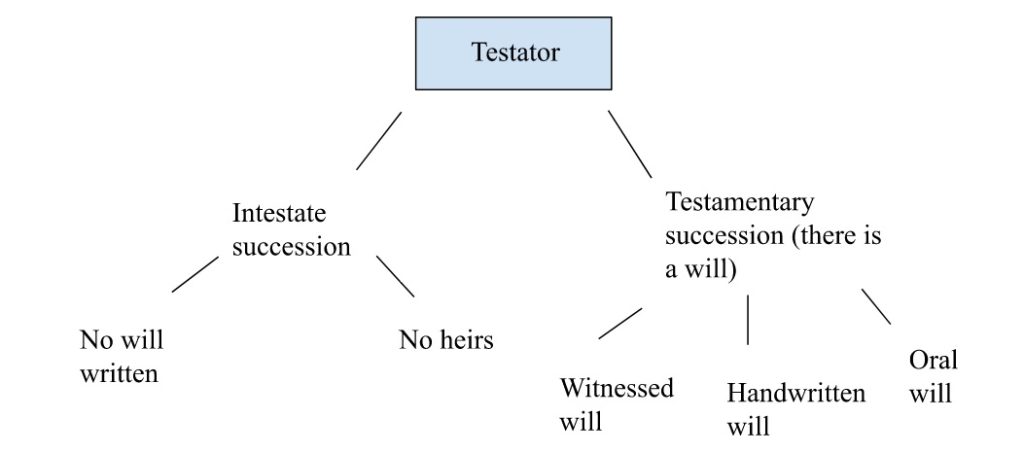Introduction: What is Estate Law in Israel?
For the same reasons writing a will while you are in good physical and mental health is a good idea, you may wish to take the time to understand how estate law functions. If you know who will inherit your property and whose heir you may be, you may more easily make necessary preparations for the future. In this article, a wills and estate attorney outlines applicable definitions and case-scenarios that can occur, with the goal of explaining complicated concepts in clear terms.

Relevant Definitions
- A testator is the deceased, the person whose estate is being resolved
- Inheritance law, determined by Israel’s Succession Law (1965), outlines the procedures for dividing estates when the testator dies.
- A Will is a legally-binding document that lists the division of the estate of the testator among individuals after their passing. A will is arranged by the testator before their death. For more information on the establishment of a personal will, read our other articles on wills and inheritances.
- A testamentary succession right is a right that is activated when a will was left by the testator.
- An intestate succession right is a right that is activated when the testator passed away without leaving a will.
- A probate order is a legal document that asserts the legitimacy of the will. This is a document that needs to be petitioned.
The remainder of this article will be divided into two sections. The first will address the relevant scenarios when a will was left by the testator, and the second will address the relevant scenarios when a will was not left by the testator.
A will is in place: testamentary succession right
An inheritance order is a document that includes a list of inheritors and the estate they receive from the will, as dictated by the Israel Inheritance Law of 1965 which states that when a person dies, their closest family relatives, specifically the spouse and children, should receive their estate. There are numerous types of wills that can be constructed, such as oral wills, witnessed wills, and handwritten wills, to be further discussed in this article.
Additionally, there are specific guidelines outlining the appropriate division of the estate based on the composition of the family, to be explained below:
- The spouse, children, and grandchildren are alive: the spouse can receive half the estate
- The spouse and other relatives but no children are included: the spouse can get ⅔ of the estate
- The spouse and children are alive: children take half of the estate
- The parents, but no spouse or children are alive: the parents take all of it
- There are siblings: the estate gets divided equally if there are no parents alive
- There are other relatives: this can depend on the situation and how the testator wished to divide out the will
Inheritance Order Application in Israel
The The Guardian General and Director of Inheritance Affairs has a streamlined process for applying for an inheritance order, which can be completed online or in person. The online application can be completed by spouses, children, and heirs, while other family members must apply in person.
2) When there is no will in place: intestate succession right
When there is no will dividing the estate written before the testator’s death, a variety of scenarios can occur depending on the composition of the living family, for example, the spouse, children, and siblings. In the case that there is no family identified, the estate of the testator gets inherited by the State of Israel.
In this article, we have reviewed various scenarios surrounding the discussion of estate law. We provide the necessary legal advice from an inheritance lawyer in Israel who has the experience and practice of Israeli estate law. We provide legal assistance in drafting a last will and testament, execution of the inheritance, and represent inheritors regarding disputes concerning the inheritance, including inheritance of Israeli property by US citizens. If you seek legal assistance from Israeli inheritance lawyers, please contact us.
